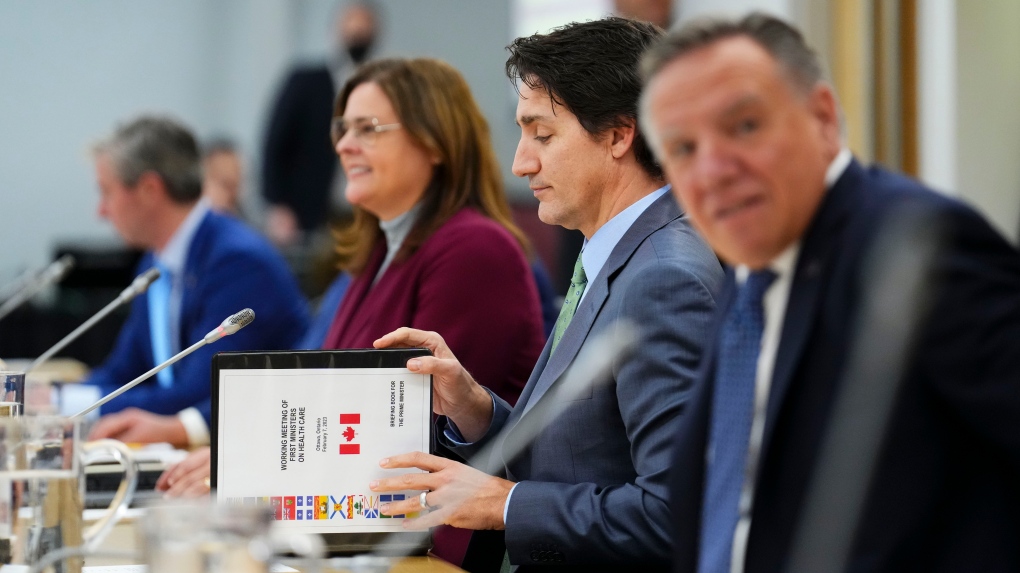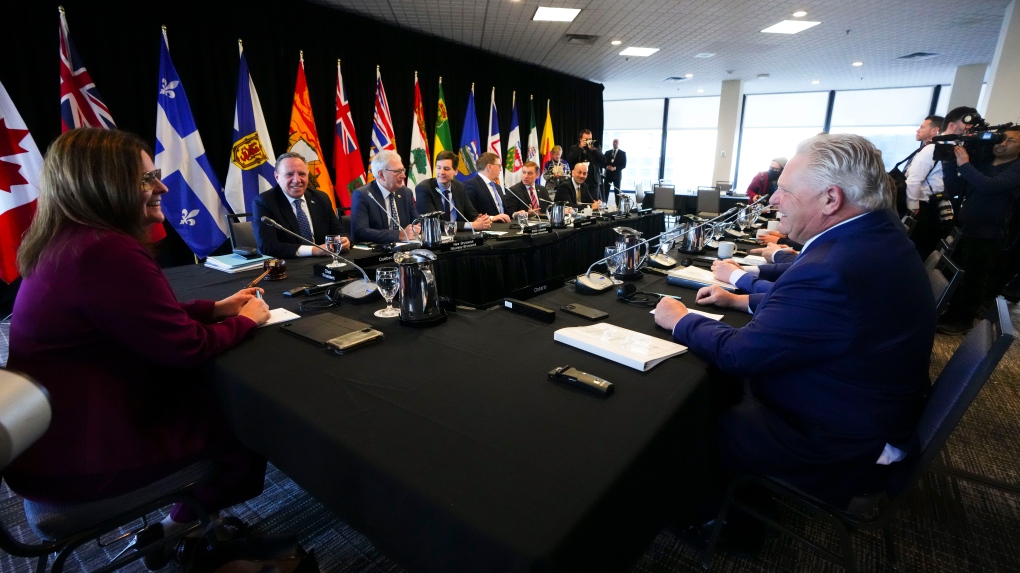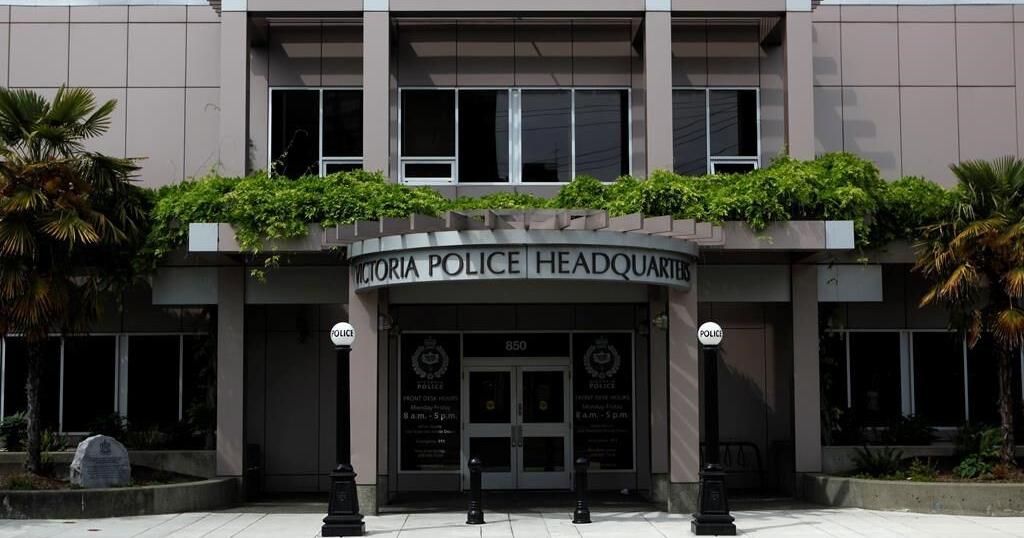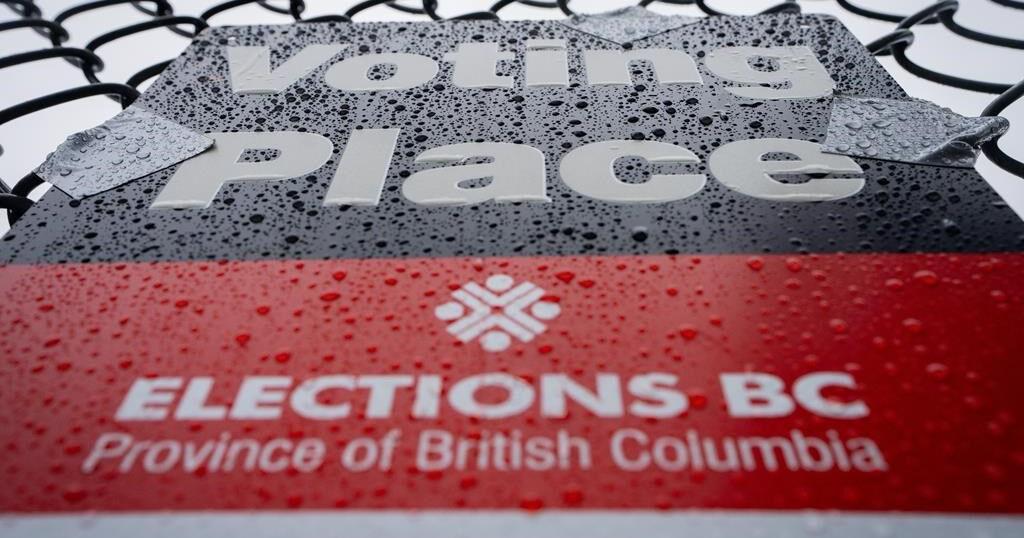VANCOUVER – Former B.C. Green leader Andrew Weaver knows what it’s like to form a minority government with the NDP, but says such a deal to create the province’s next administration is less likely this time than seven years ago.
Weaver struck a power-sharing agreement that resulted in John Horgan’s NDP minority government in 2017, but said in an interview Monday there is now more animosity between the two parties.
Neither the NDP nor the B.C. Conservatives secured a majority in Saturday’s election, raising the prospect of a minority NDP government if Leader David Eby can get the support of two Green legislators.
Manual recounts in two ridings could also play an important role in the outcome, which will not be known for about a week.
Weaver, who is no longer a member of the Greens, endorsed a Conservative candidate in his home riding.
He said Eby would be in a better position to negotiate if Furstenau, who lost her seat, stepped aside as party leader.
“I think Mr. Eby would be able to have fresh discussions with fresh new faces around the table, (after) four years of political sniping … between Sonia and the NDP in the B.C. legislature,” he said.
He said Furstenau’s loss put the two elected Greens in an awkward position because parties “need the leader in the legislature.”
Furstenau could resign as leader or one of the elected Greens could step down and let her run in a byelection in their riding, he said.
“They need to resolve that issue sooner rather than later,” he said.
The Green victories went to Rob Botterell in Saanich North and the Islands and Jeremy Valeriote in West Vancouver-Sea to Sky.
Neither Botterell nor Valeriote have held seats in the legislature before, Weaver noted.
“It’s not like in 2017 when, you know, I had been in the (legislature) for four years already,” Weaver said, adding that “the learning curve is steep.”
Sanjay Jeram, chair of undergraduate studies in political science at Simon Fraser University, said he doesn’t think it’ll be an “easygoing relationship between (the NDP and Greens) this time around.”
“I don’t know if Eby and Furstenau have the same relationship — or the potential to have the same relationship — as Horgan and Weaver did,” he said. “I think their demands will be a little more strict and it’ll be a little more of a cold alliance than it was in 2017 if they do form an alliance.”
Horgan and Weaver shook hands on a confidence-and-supply agreement before attending a rugby match, where they were spotted sitting together before the deal became public knowledge.
Eby said in his election-night speech that he had already reached out to Furstenau and suggested common “progressive values” between their parties.
Furstenau said in her concession speech that her party was poised to play a “pivotal role” in the legislature.
Botterell said in an election-night interview that he was “totally supportive of Sonia” and he would “do everything I can to support her and the path forward that she chooses to take because that’s her decision.”
The Green Party of Canada issued a news release Monday, congratulating the candidates on their victories, noting Valeriote’s win is the first time that a Green MLA has been elected outside of Vancouver Island.
“Now, like all British Columbians we await the final seat count to know which party will have the best chance to form government. Let’s hope that the Green caucus has a pivotal role,” the release said, echoing Furstenau’s turn of phrase.
The final results of the election won’t be known until at least next week.
Elections BC says manual recounts will be held on Oct. 26 to 28 in two ridings where NDP candidates led B.C. Conservatives by fewer than 100 votes after the initial count ended on Sunday.
The outcomes in Surrey City Centre and Juan de Fuca-Malahat could determine who forms government.
The election’s initial results have the NDP elected or leading in 46 ridings, and the B.C. Conservatives in 45, both short of the 47 majority mark in B.C.’s 93-seat legislature.
If the Conservatives win both of the recount ridings and win all other ridings where they lead, Rustad will win with a one-seat majority.
If the NDP holds onto at least one of the ridings where there are recounts, wins the other races it leads, and strikes a deal with the Greens, they would have enough numbers to form a minority government.
But another election could also be on the cards, since the winner will have to nominate a Speaker, reducing the government’s numbers in the legislature by one vote.
Elections BC says it will also be counting about 49,000 absentee and mail-in ballots from Oct. 26 to 28.
The NDP went into the election with 55 ridings, representing a comfortable majority in what was then an 87-seat legislature.
Jeram, with Simon Fraser University, said though the counts aren’t finalized, the Conservatives were the big winners in the election.
“They weren’t really a not much of a formal party until not that long ago, and to go from two per cent of the vote to winning 45 or more seats in the B.C. provincial election is just incredible,” he said in an interview Monday.
Jeram said people had expected Eby to call an election after he took over from John Horgan in 2022, and if he had, he doesn’t think there would have been the same result.
He said the B.C. Conservative’s popularity grew as a result of the decision of the BC Liberals to rebrand as BC United and later drop out.
“Had Eby called an election before that really shook out, and maybe especially before (Pierre) Poilievre, kind of really had the wind in his sails and started to grow, I think he could have won the majority for sure.”
He said he wasn’t surprised by the results of the election, saying polls were fairly accurate.
“Ultimately, it really was a result that we saw coming for a while, since the moment that BC United withdrew and put their support behind the conservatives, I think this was the outcome that was expected.”
— With files from Darryl Greer
This report by The Canadian Press was first published Oct. 21, 2024.



























